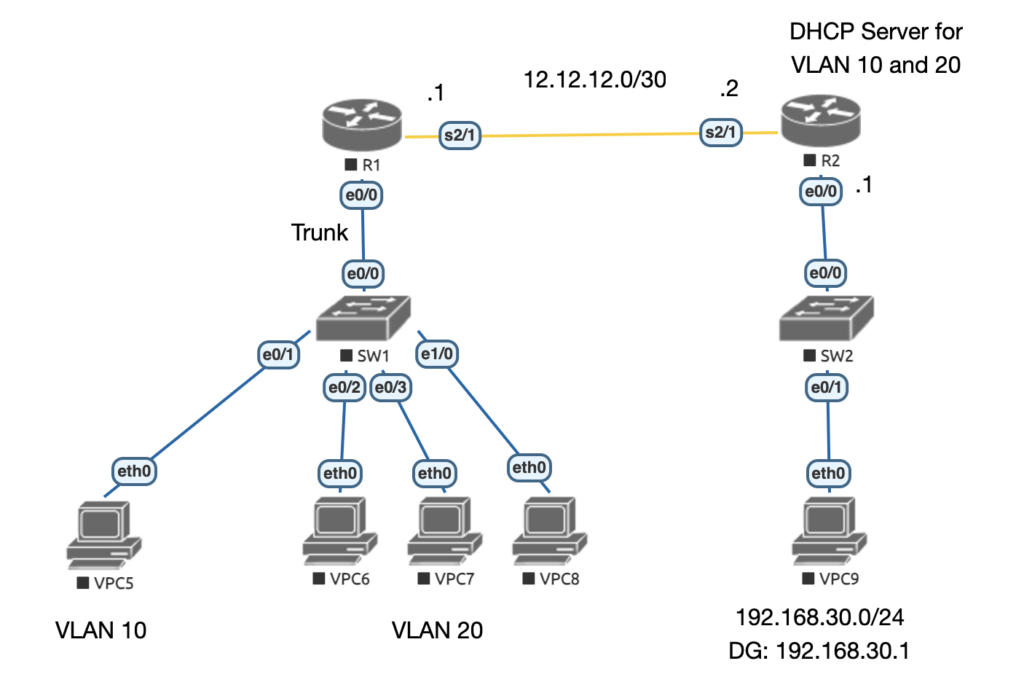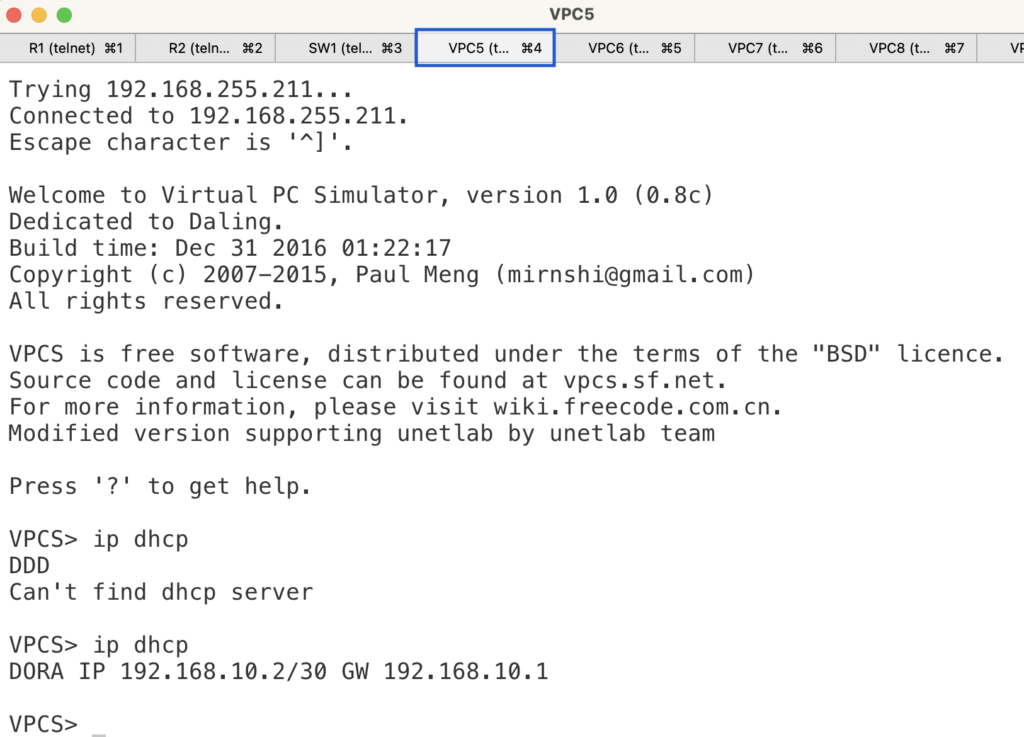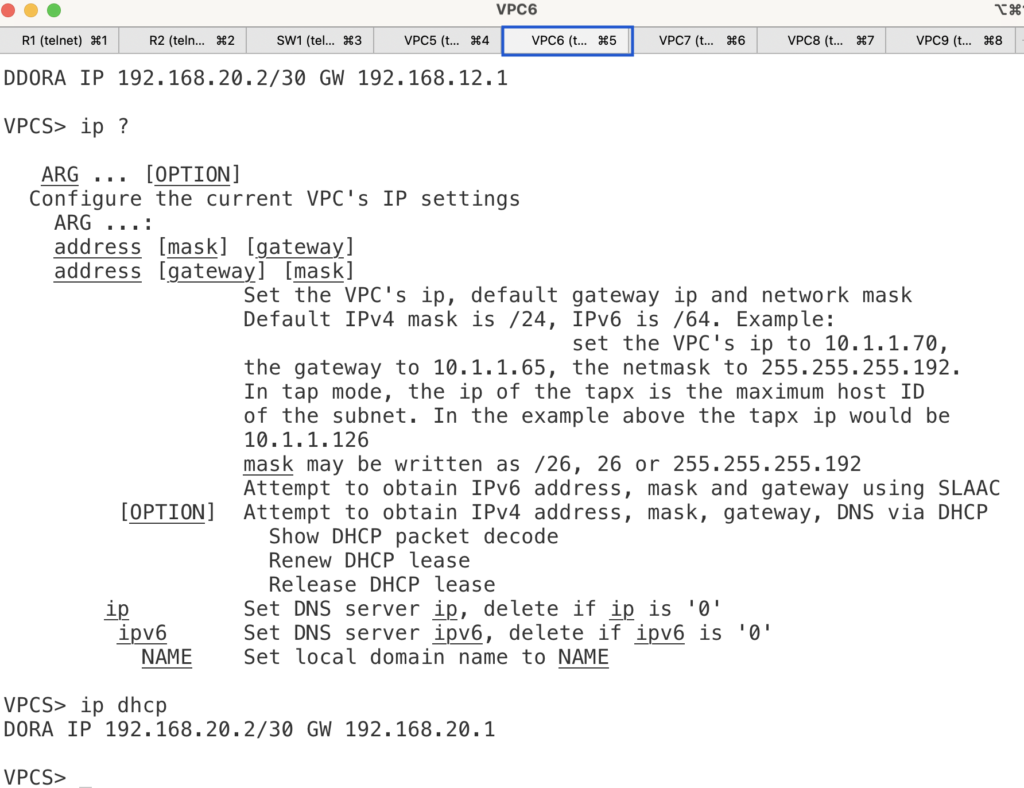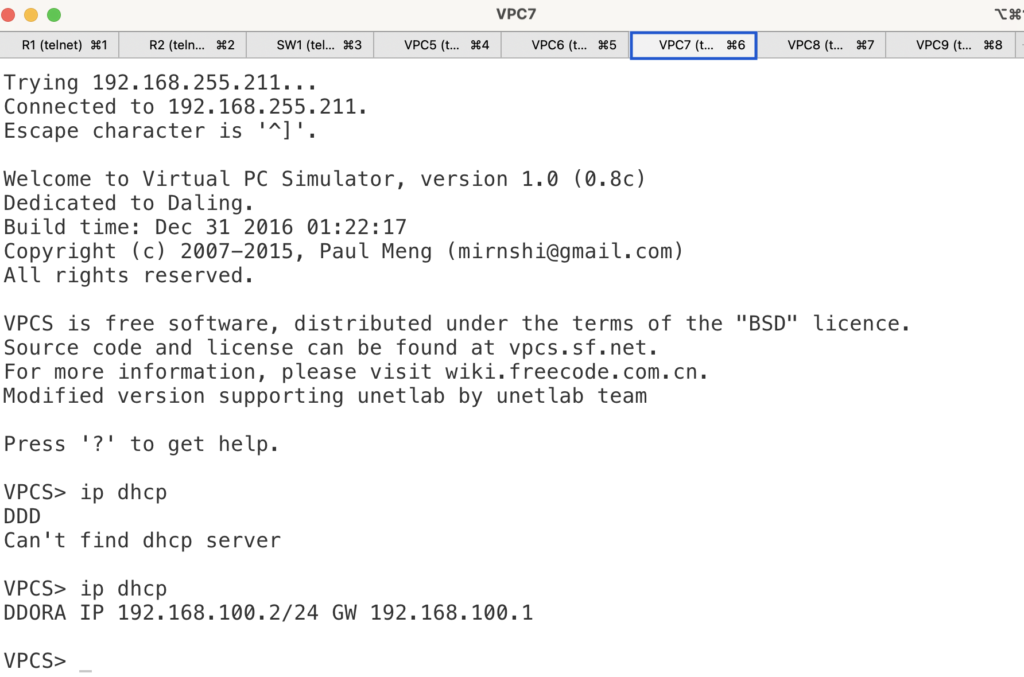04 Dec Significance of Secondary IP address(es) on Cisco Router Interface
It is possible to attach multiple IPv4 networks to the same interface by attaching a secondary IPv4 address to the same interface with the command ip address ip-address subnetmask secondary.
Real world scenario:
There might not be enough host addresses for a particular network segment. For example, suppose your subnetting allows up to 254 hosts per logical subnet, but on one physical subnet you must have 300 host addresses. Using secondary IP addresses on the routers or access servers allows you to have two logical subnets using one physical subnet.

In the above topology, R2 is configured as a DHCP server to provide IPv4 addresses for VLAN 10 and VLAN 20 PC’s.
The DHCP smart-relay command configures secondary addresses on an interface and forwards DHCP requests through each IP network. When there is no DHCPOFFER message from the DHCP server, the relay agent will count the number of times the client retries sending a request. After three retries, the relay agent will set the gateway address to the secondary address.
To demonstrate DHCP smart-relay, VLAN 10 and VLAN 20-Primary DHCP pools has only two addresses; out of which one is reserved to use as a default gateways on the router sub-interfaces – e0/0.10, e0/0.20 respectively.
Sub-interface for VLAN 20 (e0/0.20) is configured with secondary IPv4 address (192.168.100.1). When the IP addresses from VLAN20-Primary pool are exhausted, DHCP clients obtain the IP addresses from the third pool (VLAN-20-Secondary) configured for secondary IP address on R2.
R1 Configuration
Router>en
Router#config t
Router(config)#hostname R1
R1(config)#line console 0
R1(config-line)#logg synchronous
R1(config-line)#no exec-timeout
R1(config-line)#exit
R1(config)#interface e0/0
R1(config-if)#no shutdown
R1(config-if)#exit
R1(config)#interface e0/0.10
R1(config-subif)#encapsulation dot1Q 10
R1(config-subif)#ip address 192.168.10.1 255.255.255.0
R1(config-subif)#ip helper-address 12.12.12.2
R1(config-subif)#exit
R1(config)#interface e0/0.20
R1(config-subif)#encapsulation dot1Q 20
R1(config-subif)#ip address 192.168.20.1 255.255.255.252
R1(config-subif)#ip helper-address 12.12.12.2
R1(config-subif)#exit
R1(config)#interface e0/0.20
R1(config-subif)#ip address 192.168.100.1 255.255.255.0 secondary
R1(config-subif)#exit
R1(config)#ip dhcp smart-relay
R1(config)#int s2/1
R1(config-if)#ip address 12.12.12.1 255.255.255.252
R1(config-if)#no shutdown
R1(config-if)#exit
R1(config)#router eigrp 1
R1(config-router)#no auto-summary
R1(config-router)#network 0.0.0.0
R1(config-router)#end
R1#
R2 Configuration
Router>en
Router#config t
Router(config)#hostname R2
R2(config)#line console 0
R2(config-line)#logg synchronous
R2(config-line)#no exec-timeout
R2(config-line)#exit
R2(config)#
R2(config)#interface s2/1
R2(config-if)#ip address 12.12.12.2 255.255.255.252
R2(config-if)#no shut
R2(config-if)#interface e0/0
R2(config-if)#ip address 192.168.30.1 255.255.255.0
R2(config-if)#no shut
R2(config-if)#exit
R2(config)#ip dhcp excluded-address 192.168.10.1
R2(config)#ip dhcp excluded-address 192.168.20.1
R2(config)#ip dhcp excluded-address 192.168.100.1
R2(config)#
R2(config)#ip dhcp pool VLAN-10
R2(dhcp-config)#network 192.168.10.0 255.255.255.252
R2(dhcp-config)#default-router 192.168.10.1
R2(dhcp-config)#exit
R2(config)#ip dhcp pool VLAN-20-Primary
R2(dhcp-config)#network 192.168.20.0 255.255.255.252
R2(dhcp-config)#default-router 192.168.20.1
R2(dhcp-config)#exit
R2(config)#ip dhcp pool VLAN-20-Secondary
R2(dhcp-config)#network 192.168.100.0 255.255.255.0
R2(dhcp-config)#default-router 192.168.100.1
R2(dhcp-config)#exit
R2(config)#
R2(config)#interface e0/0
R2(config-if)#ip address 192.168.30.1 255.255.255.0
R2(config-if)#no shutdown
R2(config-if)#exit
R2(config)#
R2(config)#router eigrp 1
R2(config-router)#no auto-summary
R2(config-router)#network 0.0.0.0
R2(config-router)#end
R2#
SW1 Configuration
Switch>en
Switch#config t
Switch(config)#host SW1
SW1(config)#line console 0
SW1(config-line)#logg synchronous
SW1(config-line)#no exec-timeout
SW1(config-line)#end
SW1#confi t
SW1(config)#interface e0/0
SW1(config-if)#switchport trunk encapsulation dot1q
SW1(config-if)#switchport mode trunk
SW1(config-if)#exit
SW1(config)#interface e0/1
SW1(config-if)#switchport mode access
SW1(config-if)#switchport access vlan 10
SW1(config-if)#exit
SW1(config)#interface range e0/2 – 3, e1/0
SW1(config-if-range)#switchport mode access
SW1(config-if-range)#switchport access vlan 20
SW1(config-if-range)#exit
SW1(config)#





No Comments